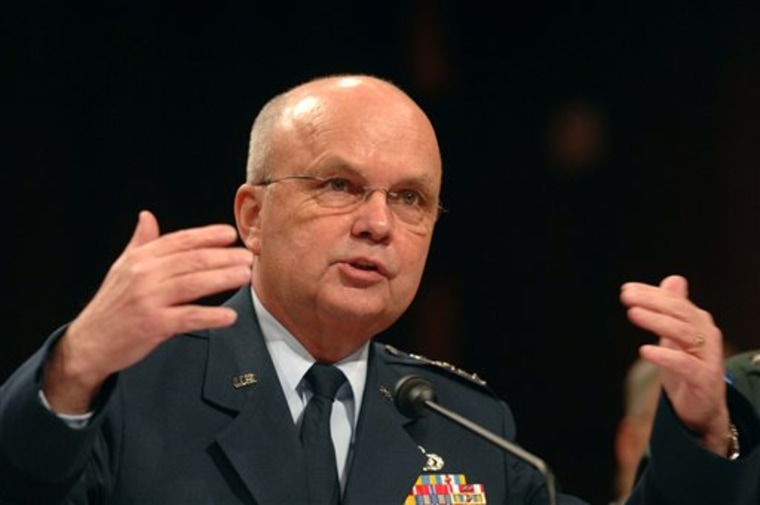Former CIA Director Gen. Michael Hayden angrily struck back Saturday at assertions the Bush administration's post-9/11 surveillance program was more far-reaching than imagined and was largely concealed from congressional overseers.
In an interview with The Associated Press, Hayden maintained that top members of Congress were kept well-informed all along the way, notwithstanding protests from some that they were kept in the dark.
"One of the points I had in every one of the briefings was to make sure they understood the scope of our activity 'They've got to know this is bigger than a bread box,' I said," said Hayden, who also previously headed the National Security Agency.
"At the political level this had support," said the one-time CIA chief, jumping foursquare into an escalating controversy that has caused deep political divisions and lingering debate on the counterterrorism policies of an administration now out of power.
Hayden was reacting to a report issued Friday by a team of U.S. inspectors general which called the surveillance program in the wake of the Sept. 11, 2001, terror attacks "unprecedented." The report also questioned the program's legal rationale and the excessive secrecy that enshrouded it.
Hayden, who in 2001 designed and carried out the secret program, told The AP he is distressed by suggestions that Congress was not fully informed. He said that he personally briefed top lawmakers on the entire surveillance operation and said he felt that they supported it.
American phones and computers were wiretapped
The details of the wider surveillance program described by the federal investigative report remain classified. The program included the wiretapping of American phone and computer lines and was intended to detect communications from the al-Qaida terrorist network. That was revealed by the New York Times in 2005 and later confirmed by then-President George W. Bush.
Several Democratic members of the House and Senate expressed surprise and concern Friday about the still-secret surveillance program.
Hayden asserted that just weeks after Bush approved the activity, senior Republicans and Democrats on the intelligence committees in the House and Senate started getting briefed regularly on its details. He said these sessions happened about four times a year. Hayden also said the number of lawmakers informed was intentionally kept small because the program was highly classified.
On occasion, he said, the briefing audience was expanded to include top members of the House and Senate leadership as well.
Hayden also said that the members of Congress who were briefed were told the average daily level of surveillance activity and the cumulative activity since the program started. And he said the meetings nearly always occurred at the White House, with Vice President Dick Cheney in attendance.
Program's extent remains unknown
The Bush surveillance program has been contentious since it was first revealed, raising concerns about the extent of secret activities undertaken since the terrorist attacks on New York and Washington and the potential violation of civil liberties. Indeed, the report released Friday said that most of the information gathered under the wider program ultimately did not have any connection to terrorism.
It was so secret that few members of Bush's inner circle were "read in" on the program. Even John Ashcroft, who was attorney general at the time, got an accurate description of one surveillance activity only two years after he first certified it as legal. And his initial request to brief his chief of staff and deputy on the program were refused by the White House.
Just what those activities involved remains classified, but the report released Friday pointedly said that any continued use of the information gathered in the secret programs must be "carefully monitored."
Bush authorized the warrantless wiretapping program under the authority of a secret court in 2006, and Congress approved most of the intercepts in a 2008 electronic surveillance law. The fate of the remaining and still-classified aspects of the wider surveillance program is not clear from the report.
In the interview Saturday, Hayden called the program extremely valuable and said that it served as an early warning system to help prevent further al-Qaida attacks.
Some members of Congress are calling for a full independent inquiry and others are urging further congressional investigations.
Rep. Jane Harman, a California Democrat, told The AP on Friday that she was shocked by the report. She said she asked former White House counsel Alberto Gonzales — after the wiretapping was revealed in 2005 — whether the government was conducting any other undisclosed intelligence activities. She said he told her there were no additional operations.
In a separate but related move, House Democrats are pressing for legislation that would expand congressional access to secret intelligence briefings. The Obama administration has threatened to veto it over concerns about protecting secrecy.
